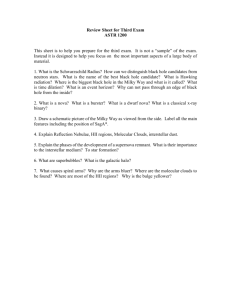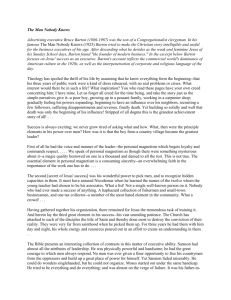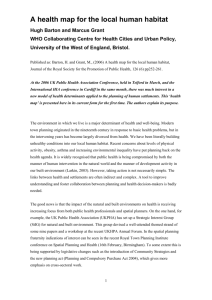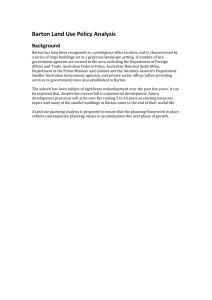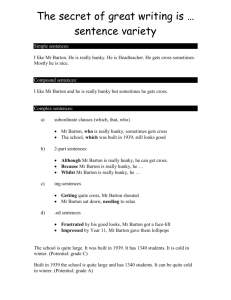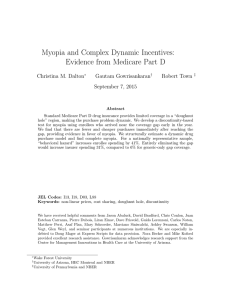the Mystery of the Hole
advertisement
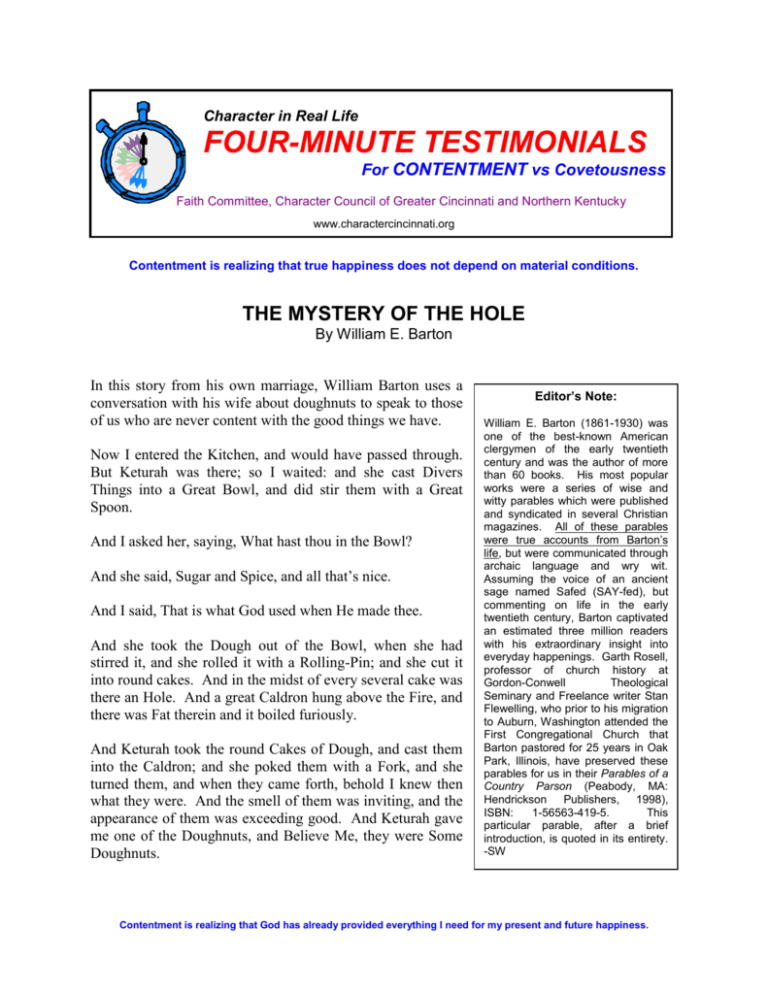
Character in Real Life FOUR-MINUTE TESTIMONIALS For CONTENTMENT vs Covetousness Faith Committee, Character Council of Greater Cincinnati and Northern Kentucky www.charactercincinnati.org Contentment is realizing that true happiness does not depend on material conditions. THE MYSTERY OF THE HOLE By William E. Barton In this story from his own marriage, William Barton uses a conversation with his wife about doughnuts to speak to those of us who are never content with the good things we have. Now I entered the Kitchen, and would have passed through. But Keturah was there; so I waited: and she cast Divers Things into a Great Bowl, and did stir them with a Great Spoon. And I asked her, saying, What hast thou in the Bowl? And she said, Sugar and Spice, and all that’s nice. And I said, That is what God used when He made thee. And she took the Dough out of the Bowl, when she had stirred it, and she rolled it with a Rolling-Pin; and she cut it into round cakes. And in the midst of every several cake was there an Hole. And a great Caldron hung above the Fire, and there was Fat therein and it boiled furiously. And Keturah took the round Cakes of Dough, and cast them into the Caldron; and she poked them with a Fork, and she turned them, and when they came forth, behold I knew then what they were. And the smell of them was inviting, and the appearance of them was exceeding good. And Keturah gave me one of the Doughnuts, and Believe Me, they were Some Doughnuts. Editor’s Note: William E. Barton (1861-1930) was one of the best-known American clergymen of the early twentieth century and was the author of more than 60 books. His most popular works were a series of wise and witty parables which were published and syndicated in several Christian magazines. All of these parables were true accounts from Barton’s life, but were communicated through archaic language and wry wit. Assuming the voice of an ancient sage named Safed (SAY-fed), but commenting on life in the early twentieth century, Barton captivated an estimated three million readers with his extraordinary insight into everyday happenings. Garth Rosell, professor of church history at Gordon-Conwell Theological Seminary and Freelance writer Stan Flewelling, who prior to his migration to Auburn, Washington attended the First Congregational Church that Barton pastored for 25 years in Oak Park, Illinois, have preserved these parables for us in their Parables of a Country Parson (Peabody, MA: Hendrickson Publishers, 1998), ISBN: 1-56563-419-5. This particular parable, after a brief introduction, is quoted in its entirety. -SW Contentment is realizing that God has already provided everything I need for my present and future happiness. And I said, To what purpose is the Hole? If the Doughnut be so good with a part Punched Out, how much better had it been if the Hole also had been Doughnut! And Keturah answered and said, Thou speakest as a Fool, who is never content with the Goodness that is, but always complaineth against God for the lack of the Goodness which he thinketh is not. If there were no Hole in the Doughnut, then were it like unto Ephraim, a cake not turned. For, though the Cake were Fried till the Edges thereof were burnt and hard as thy Philosopher’s Stone, yet would there be uncooked Dough in the middle. Yea thou shouldst then break thy teeth on the outer rim of every Several Doughnut, and the middle part thereof would be Raw Dough. And I meditated much on what Keturah had told me. And I considered the Empty Spaces in Human life; and the Desolation of its Vacancies; and how hearts break over its Blank Interstices. And I pondered in my soul whether God doth know that save for these our lives would be like unto Ephraim. And I spake of these things to Keturah, and she said, I know not the secret of these mysteries. Yea, mine own heart acheth over some of the Empty Places. But say unto those who are able to hear that the person who useth not the good things which he hath but complaineth against God for those he lacketh, is like unto one who rejecteth a Doughnut because he Knoweth not the Mystery of the Hole. -- Used by Permission Contentment is realizing that God has already provided everything I need for my present and future happiness.


